#political spectrum
Text
a lot of people might disagree but literally everything is a spectrum. from gender and sexuality to chairs.
#transgender#trans pride#transisbeautiful#transmasc#trans rights#gender euphoria#gender identity#gender dysphoria#spectrum#examples#autism spectrum disorder#asexual spectrum#autistic spectrum#aromantic spectrum#schizo spectrum#color spectrum#political spectrum#literally everything is a spectrum
133 notes
·
View notes
Text
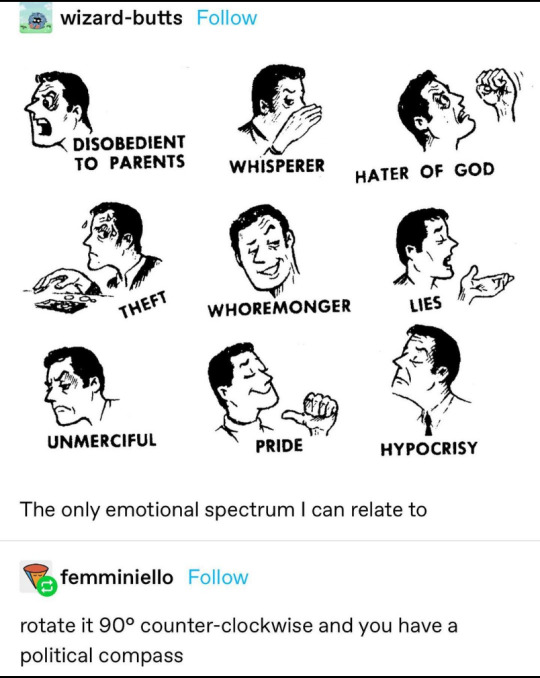
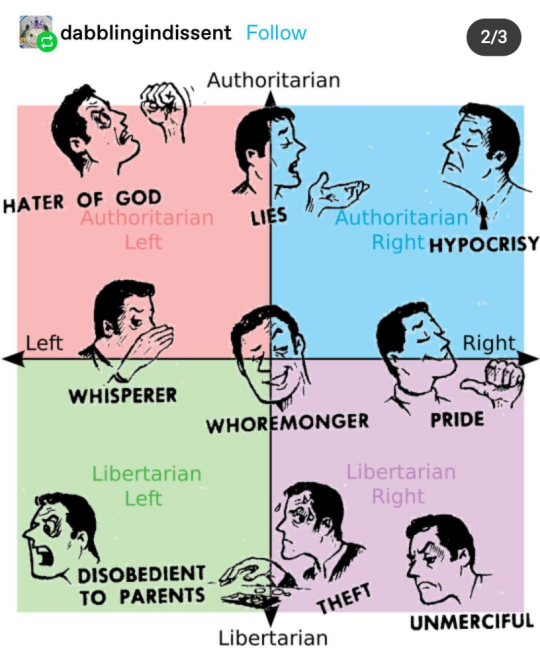
75 notes
·
View notes
Text
260 notes
·
View notes
Text
I don't know the podcaster Chris Williamson well and am not sure that I'm sold on his general personality and worldview, but YouTube points me to videos of his from time to time and I typically find his conversations engaging. I don't know anything about his recent interviewee Destiny either, but I thought this episode was worthwhile and notable in that there was a particular and repeated emphasis on my favorite topic of balancing between high- and low-agency views. I always consider it a small victory when I see someone correlate/equate those two leanings with the political Right and Left respectively, as Destiny does over and over with the air of it being an obvious fact.
The part of the podcast episode that emphasizes this the most starts at around the 20:00 mark: Destiny says that when he talks to his audience about politics, he presents a very left-leaning perspective where he emphasizes systems and the unfairness they perpetuate on a societal scale. But, when he talks to someone about how to improve their life as an individual, he focuses on the need for them to take charge and better themself, lamenting that left-wing sources are lousy at doing this and opining that this is one of the reasons for liberals being unhappier than conservatives.
I tend to agree with this approach: on the political side, I'm farther to the left, whereas like half my Tumblr content these months could be interpreted as lamenting how left-leaning youth culture has brought too much of the mindset with which one comes to liberal political views to how one should manage one's own life struggles. I've seen this theme before among discussions of how best to advise others and oneself. For instance, I've seen it commented that Jordan Peterson, overtly a pretty high-agency-ist thinker all around, has been a very successful therapist for a reason but a very questionable-at-best political commentator for that very same reason.
When Chris Williamson asks Destiny how he reconciles those two mindsets that he employs in different contexts, Destiny seems temporarily a little lost for words. I feel that I would have a firmer answer: namely, that in the context of politics you're trying to change the world, so you have to focus on treating systems as changeable, whereas in the context of your own life, you can control your own actions but can't directly change how society is set up, so you have to treat it as fixed and unalterable and focus on your own actions instead. It's all quite consistent and logical.
16 notes
·
View notes
Text
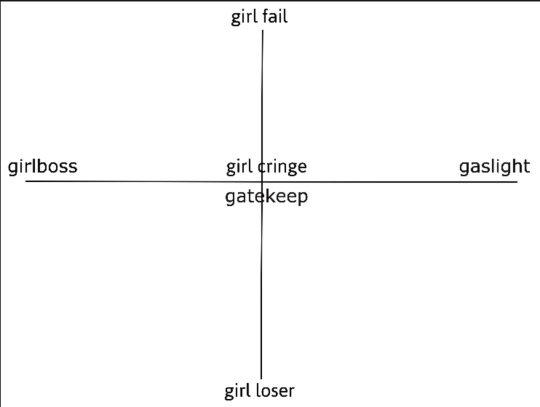
@ladybugsandlattes
babes new political spectrum just dropped
#made a chart tonight#forced to watch bottoms#born to make bad graphs#chart#political spectrum#new political spectrum just dropped#girlboss#gaslight#gatekeep#girl fail#girl cringe#girl loser
5 notes
·
View notes
Text
I understand that these overlap. I understand that there are many positions that aren't covered by these terms and that sometimes these terms can have different meanings in different contexts.
I'm just curious given a limited and imperfect list what people choose.
8 notes
·
View notes
Text

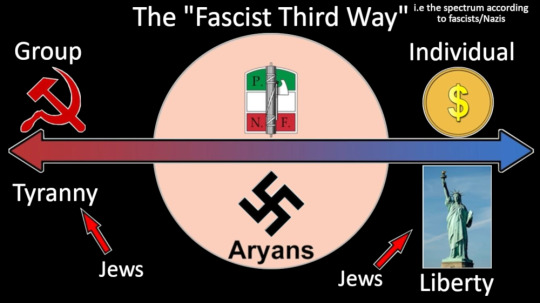

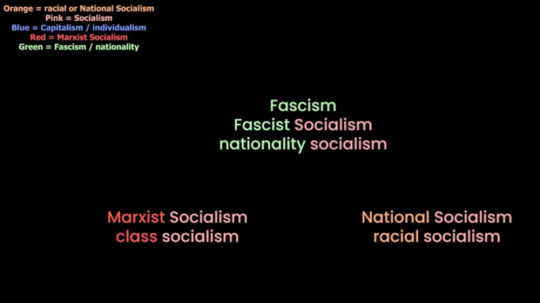

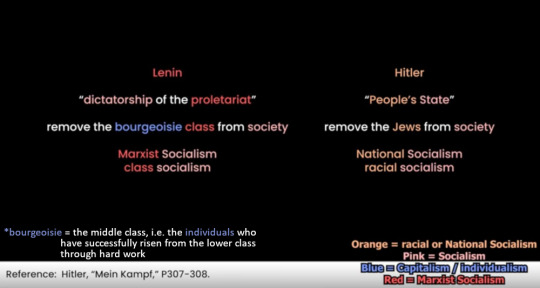
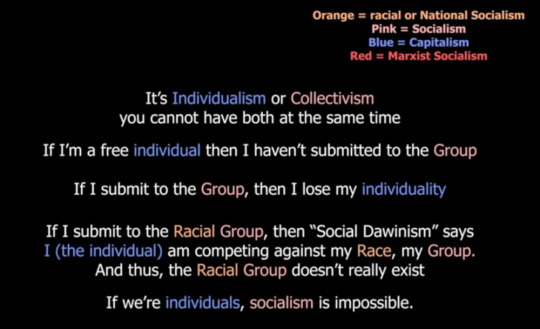

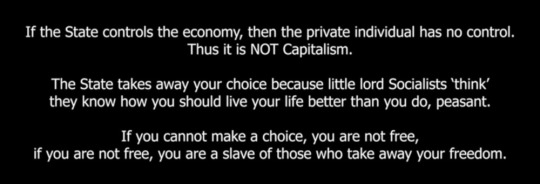
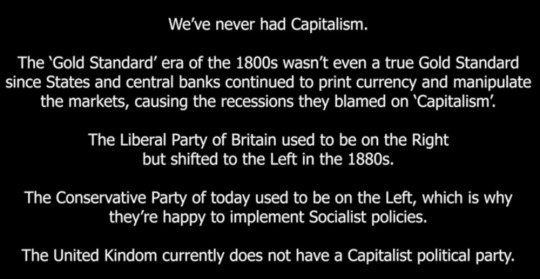

Since the current political environment is so mixed up by bad actors that the majority of people don't know what they are actually advocating for, here is a compact lesson so you know what you are voting for. These slides are from TIKhistory (mostly) who has done his own research after being disenfranchised by the left.
This is not to say that, to use the US as an example, the Republican party is 'good' or even on the right. This should show that even the Republican party is not even on the right anymore and both major parties in the US are on the left; just that the Democratic party is more left than the Republican. Both are bad if you value your individuality, personal freedom, and ability to own your own stuff without corporations breathing down your back.
#politics#socialism#capitalism#fascisim#left vs right#political parties who say they are on the 'right' aren't always actually on the right#the far right would be anarcho-capitalism or no state/government and free market driven purely by supply and demand of individuals#political spectrum#marxism#communism#leftism#right wing#left wing#republicans#democrats#national socialism#long post
3 notes
·
View notes
Text
this came to me either in a fever dream or last night when i was high i dont remember which but i need people to tell me where they are on the spectrum
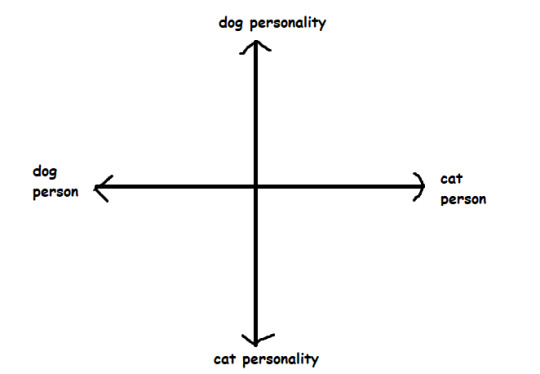
9 notes
·
View notes
Video
youtube
Let's talk about both parties being the same and the overton window....
#youtube#politics#political spectrum#left#right#authoritarians#america#perspective#democrats#republicans#united states#beau of the fifth column#overton window#political parties
6 notes
·
View notes
Text
The Aesthetic Compass
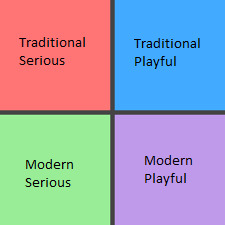
Hey guys! This right here is my idea for a tool similar to the political compass but for aesthetics. As you can see, the vertical axis measures aesthetics from traditional to modern, and the horizontal axis measures aesthetics from serious to playful.
The compass is divided into four quadrants:
- Traditional-serious (Stately): e.g.: Academia
- Traditional-playful (Whimsical): e.g.: Cottagecore
- Modern-serious (Contemporary): e.g.: Minimalism
- Modern-playful (Funky): e.g.: Memphis
I hope you liked my idea! Don't forget to like and follow me!
#aesthetic#aesthetics#political compass#traditional style#modern style#serious#playful#design#political spectrum#artistic#art#creative expression#traditional#modern#visual aesthetics#design inspiration#creative ideas#design thinking#visual design#graphic design#design process#artists on tumblr#digital art#visual communication#creative process#design tips#dark academia#light academia#academia aesthetic#classic academia
2 notes
·
View notes
Text

After tossing around alternate political compasses, I am back to this single line model. Right and left are indeed useless concepts. The degree to which a system imposes its ideology on the populace is indeed all that matters.
2 notes
·
View notes
Text
7 notes
·
View notes
Text
There's an issue when talking about people who are near the center of the political spectrum, and I think it lies in a nuance between the terms moderate and centrist.
A moderate refers to someone who holds political stances that happen to be near the average of the prevailing clusters of opinions on each side of the issue (within the contextual time and region). My impression is that "centrist" has a different connotation, and a worse one in the way that many -ist terms tend to have negative connotations at least among intellectuals who promote freethought: for instance, Darwinist and evolutionist are mainly used by those who oppose the theory of evolution because the -ist suffix suggests ideological adherence rather than something more scientific-minded (I've always tried to avoid calling myself an evolutionist for this reason).
Similarly, calling someone a centrist seems to suggest that they're adhering to a meta-ideological agenda, one which some people no doubt do pursue: that of choosing, as a rule, stances which reflect the average of the opposing sides. (I've certainly seen people accused of being "radical centrists" if they're perceived to take this philosophy too rigidly.) There are possible defenses for this: one could take something akin to majoritarianism as a guiding light, for instance, where they figure that humans as an overall population tend to be correct about things on average -- sure, we differ widely on certain issues, but the number of people too far on one side is always going to be balanced out by the number of people too far on the opposite side. I personally find this an extremely doubtful assumption. I also tend to think that some people use it as a cover for laziness: there's no need to research issues on your own in an open-minded manner if you can just take the average of the opinions you see around you as the formula for the correct stance.
So according to my interpretation of centrism, it's something I (and I think many others) view unfavorably. But it would be an unfair to conflate this with someone who arrives at their opinions in a freethinking way without reference to the major political parties' stances or how they perceive the camps that most other people belong to, and finds that their views happen to lie near the center on most issues -- in other words, centrists should not be confused with moderates. And I suspect that a lot of hostility towards moderates comes from such a conflation.
13 notes
·
View notes
Text
Watch "How Tech Companies Are Profiting Off Your Anger - Long Story Short | The Daily Show" on YouTube
youtube
#the daily show#daily show#political spectrum#political satire#political polarization#sarah silverman#Youtube
2 notes
·
View notes
Link
I myself am someone who spends a lot of time reading books and articles about the Middle Ages and then using the Internet to talk about that interest of mine. However, this recent article makes some good points about how there are individuals today who look at the era fondly when there is nothing to be fond of. It argues that this happens with people on both sides of the political spectrum. While the reasons are different, according to the author, the mindset can have similar effects, and the reality of living at the time for a common serf involved daily toil, no civil liberties, a high risk of dying young, and a pervasive likelihood of violence. This article is interesting both in its discussion of medieval life as well as how modern society looks at the past.
#article#discussion#europe#health#historians#history#interesting#medieval#middle ages#mindset#nobility#nobles#peasantry#political spectrum#politics#quality of life#serfdom#serfs#society#scholarship
17 notes
·
View notes
Text
I’d often felt that the traditional political square didn’t really work so I thought I’d try to put something else together.
Each set of alignments can be combined in any way with any of the others, but you can only pick one stance per set.
The Base Alignments:
Ethics: Moral vs Amoral
Civil: The State vs Anarchy
Societal: Collectivism vs Libertarianism
Economic: Socialism vs Capitalism
To Define the Axioms:
Ethics
Moral: People should be concerned with the rightness or wrongness of something
Null: I don’t know what the rightness or wrongness of things should be
Amoral: People should be unconcerned with the rightness or wrongness of something
-----
Civil
Statist: Society should be constituted with authorities or a set hierarchy
Null: I don’t know how society should run
Anarchist: Society should be constituted without authorities or a set hierarchy
-----
Societal
Libertarian: Anyone should be able to do whatever they want
Null: I don’t know what other people should be able to do
Collectivist: A group should be able to do whatever it wants
-----
Economic
Socialist: Anyone who’s affected by something should have a say in how it works/runs
Null: I don’t know how the economy should work
Capitalist: Only the owners of something should have a say in how it works/runs
__________
Examples
An Amoral Anarchist Libertarian Capitalist would believe that:
- People should do whatever they want regardless of how it affects other people
- Society should be constituted without authorities or a set hierarchy
- Anyone should be able to do whatever they want so long as it doesn’t hurt anyone else
- Only the owners of something should have a say in how it works/runs
People should be able to do whatever they want in society or with their things regardless of what other people think
+++++
A Moral Anarchist Libertarian Socialist would believe that:
- People should be concerned with the rightness or wrongness of something
- Society should be constituted without authorities or a set hierarchy
- Anyone should be able to do whatever they want
- Anyone who’s affected by something should have a say in how it works/runs
People should be able to do whatever it is they want so long as it doesn’t hurt anyone else, but everyone who’s affected by something should have a say in how it goes.
+++++
I personally am a Moral Collectivist Socialist, which means:
- People should be concerned with the rightness or wrongness of something
- I don’t know how society should run
- A group should be able to do whatever it wants
- Anyone who’s affected by something should have a say in how it works/runs
Groups should be able to do what they need to do to get by so long as it doesn’t hurt anyone else. Those groups should also share ownership of things that affect the group as a whole. I don’t know how society should run but it shouldn’t need hurt anyone in order to function
0 notes